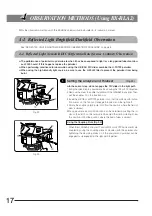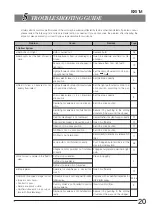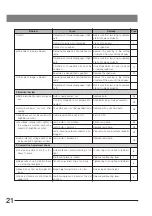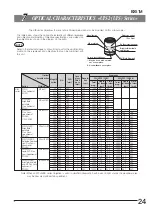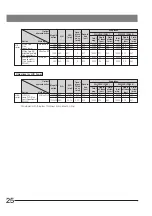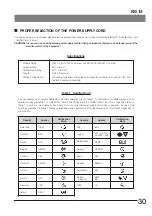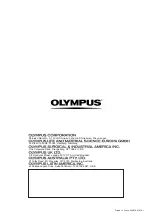
29
5
Attaching the Eyepiece
(Fig. 35)
Gently insert the eyepiece all the way into each eyepiece sleeve.
# When using the U-BI30-2 binocular tube, eyepieces with built-in mi-
crometer disk cannot be attached.
# When using a finder eyepiece or an eyepiece with micrometer disk,
attach it to the right-hand eyepiece sleeve.
When doing so, make sure that the eyepiece positioning pin @ fits
into the notch ² on the eyepiece sleeve.
# The super widefield trinocular observation tube is equipped with a
positioning notch on both eyepiece sleeves. Make sure that the
positioning pins on both eyepieces fit into the respective notches.
10
Attaching the Power Cord
(Fig. 36 & 37)
!
The power cord is vulnerable when bent or twisted. Never subject it
to excessive force.
!
Make sure that the main switch @ is set to “ ” (OFF) before con-
necting the power cord.
!
Always use the power cord provided by Olympus. If no power cord
is provided with the microscope, please select the proper power
cord by referring to chapter “PROPER SELECTION OF THE POWER
SUPPLY CORD” at the end of this instruction manual.
1. Connect the power cord plug ² to the AC receptacle ³.
!
The power cord should be connected to a grounded, 3-conductor
power outlet. If the power outlet is not grounded properly, Olympus
can no longer warrant the electrical safety performance of the equip-
ment.
2. Plug the power cord plug | into the wall outlet ƒ.
!
If the power cord comes in contact with the lamp housing or the
surroundings, the cord may melt down, causing electric shock haz-
ards. Be sure to distribute the power cord at enough distance from
the lamp housing.
Fig. 35
Fig. 36
Fig. 37
@
²
@
²
³
|
ƒ
Summary of Contents for BX51M
Page 35: ......



